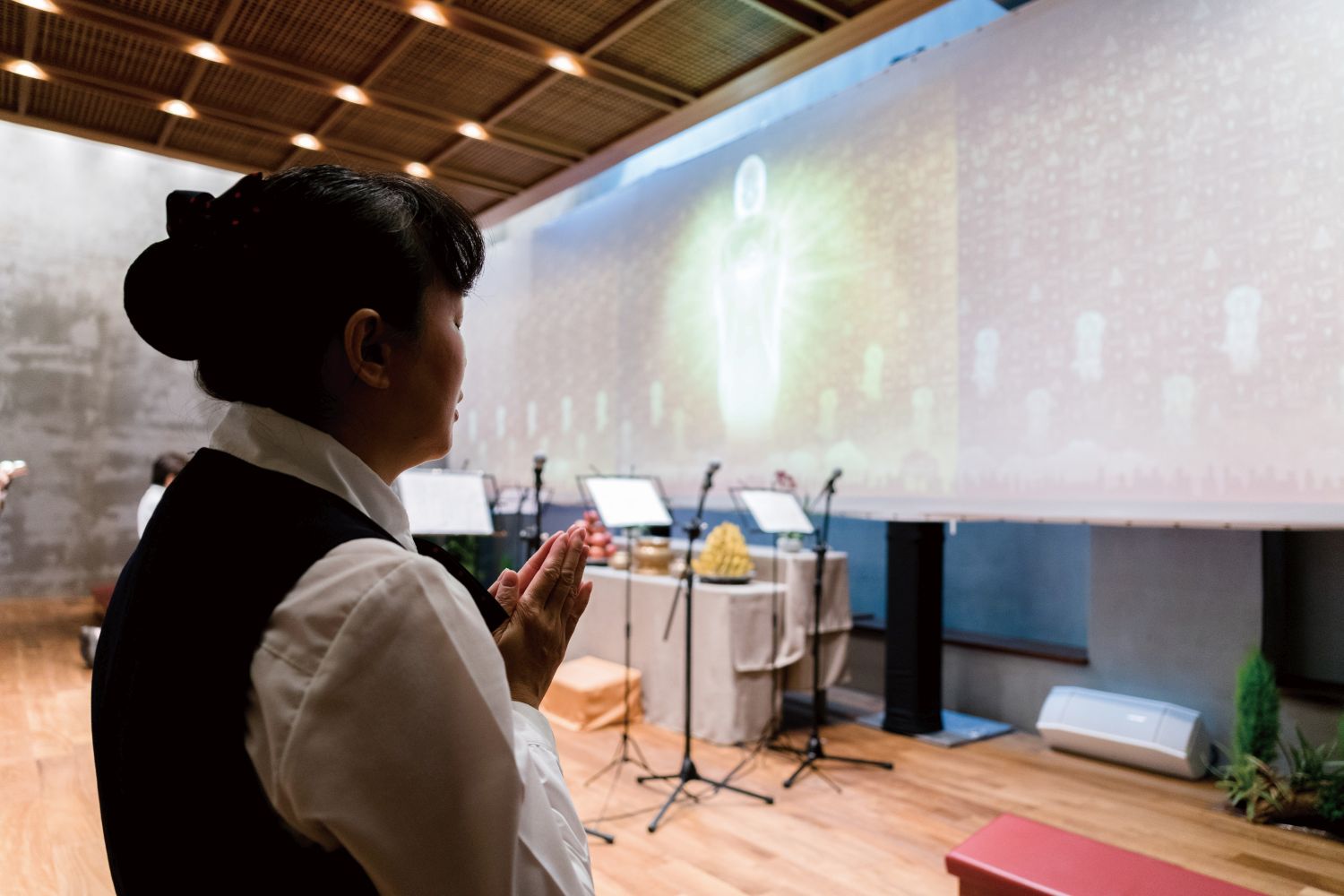Special Topics
The Transfer of Merit: the Giving of Dharma that could be Practiced at any Time
 In the initial stages of our journey of self-cultivation, most of us may still be inclined to transfer merit only to ourselves, our family members, and our loved ones. This is a focal point to which we should apply our efforts when we have just started practicing Buddhism. As our practice deepens and our understanding of Buddhism becomes more profound, the capacity of our heart will gradually expand, thus making us more willing to transfer merit to all sentient beings. Thus, the practice of merit transfer involves dissolving and reducing the sense of self, thereby cultivating compassion and equanimity.
In the initial stages of our journey of self-cultivation, most of us may still be inclined to transfer merit only to ourselves, our family members, and our loved ones. This is a focal point to which we should apply our efforts when we have just started practicing Buddhism. As our practice deepens and our understanding of Buddhism becomes more profound, the capacity of our heart will gradually expand, thus making us more willing to transfer merit to all sentient beings. Thus, the practice of merit transfer involves dissolving and reducing the sense of self, thereby cultivating compassion and equanimity.The transfer of merit is most supreme, complete, and without outflows when our mind is capable of expanding to include all sentient beings. To help all sentient beings be liberated from suffering and attain happiness, we generate the Bodhi mind of attaining Buddhahood and transfer our merit to all sentient beings. We vow to use the limited power of our vows to resonate with the infinite, compassionate vows of the various Buddhas and Bodhisattvas, and attain supreme enlightenment along with all sentient beings.
As stated in the tenth vow of the "Practices and Vows of Bodhisattva Samantabhadra":
From the initial vow of making prostrations to the Buddhas and Bodhisattvas,
To the vow of constantly according with all sentient beings
All the merits will all be transferred to all sentient beings
in the Dharma realm and the realm of emptiness.
We vow to allow all sentient beings to always be safe, joyous,
and free from illnesses and suffering.
May the acts of doing evil deeds be unfruitful,
And may the practice of doing good deeds soon be fulfilled.
May all sentient beings attain liberation and the ultimate, supreme enlightenment.
However, Thubten Chodren from the Sravasti Abbey in America explained, "It's not as if you and I both have a bank of merit, where the act of transferring merit is like writing a check, and the merit is just transferred to and from different bank accounts. It is the power of our virtuous mind and karma which creates a kind of energy field, which in turn influences others and makes it easier for them to accumulate virtuous karma.”
This is similar to the metaphor of the "inexhaustible lamp" in the Vimalakirti Sutra: When one lights an oil lamp, its brightness is quite limited. If we're able to use our lamp to light others' lamps, the brightness from our lamp does not diminish in the slightest. To the contrary, the lamps shine upon one another, thus illuminating everything.
Master Sheng Yen once preached to his disciples: "The transfer of merit should be applied in our daily lives. There is nothing that Amitabha could do if one only seeks to receive a resonance from the Buddhas by chanting their names in the hopes that they can deliver their family members." Therefore, whether the act of transferring merit can move and benefit others depends on whether we understand the importance of gratitude. In addition, its effectiveness depends on whether our mind and body have softened through self-cultivation and we have let go of self-centeredness. Others will naturally feel moved and more willing to improve themselves when we are influenced by Buddhadharma and thus become better versions of ourselves. Such is the true power of merit transfer.
Extended reading:
Transfer of Merit –The Practice of Generating a Great Mind
The Transfer of Merit: the Giving of Dharma that could be Practiced at any Time
What Buddhist Scriptures Reveal about the Evolution of Merit Transfer
Dedicating the merit for attainment of nirvana is superior to praying for karmic blessing in the human and heavenly realms
To practice the Buddhist teaching is to transfer merit in its true sense
Compassionately delivering sentient beings, dedicating the merit for supreme Bodhi
Dedication verses commonly seen in the Chinese Buddhist tradition
Tibetan Buddhism: The most sublime chapter on the Practices and Vows of Bodhisattva Samantabhadra
Q1: How is merit transfer different from the blessings we give to others in our everyday life?
Q2: Must we first accumulate merit before we can transfer it to others?
Q3: Would it matter if I don't transfer merits after chanting?
Q4: When we transfer the merit generated from self-cultivation to our family, friends, and deceased loved ones, can they really receive it?
Q5: Should we still transfer merit to specific people after we have already transferred it to all sentient beings in the Dharma realm?
Q6: The terms "making vows" and "transfer of merit" are often used alongside each other in Mahayana Buddhist scriptures. What are the differences between them?
Q7: Are there corresponding dedication verses for different Dharma methods? Can these dedication verses be used interchangeably?
Resource: Humanity Magazine Issue #413
Photo: Humanity Magazine Issue #413
Translation: Ariel Shen
Editing: Keith Brown, Denise
